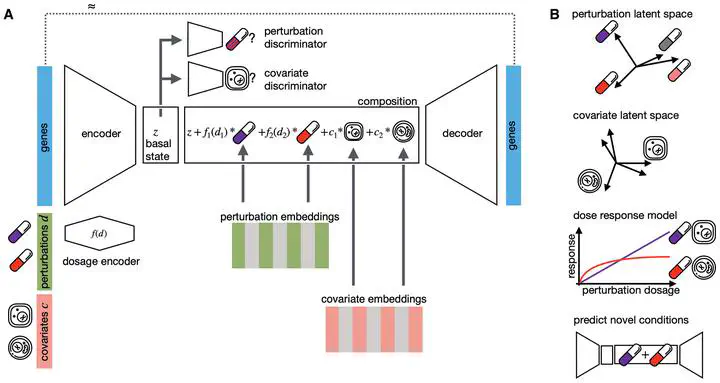 Concept Figure
Concept Figure
Abstract
Recent advances in multiplexed single-cell transcriptomics experi- ments facilitate the high-throughput study of drug and genetic perturbations. However, an exhaustive exploration of the combina- torial perturbation space is experimentally unfeasible. Therefore, computational methods are needed to predict, interpret, and prior- itize perturbations. Here, we present the compositional perturba- tion autoencoder (CPA), which combines the interpretability of linear models with the flexibility of deep-learning approaches for single-cell response modeling. CPA learns to in silico predict tran- scriptional perturbation response at the single-cell level for unseen dosages, cell types, time points, and species. Using newly generated single-cell drug combination data, we validate that CPA can predict unseen drug combinations while outperforming baseline models. Additionally, the architecture’s modularity enables incorporating the chemical representation of the drugs, allowing the prediction of cellular response to completely unseen drugs. Furthermore, CPA is also applicable to genetic combinatorial screens. We demon- strate this by imputing in silico 5,329 missing combinations (97.6% of all possibilities) in a single-cell Perturb-seq experiment with diverse genetic interactions. We envision CPA will facilitate efficient experimental design and hypothesis generation by enabling in silico response prediction at the single-cell level and thus accelerate therapeutic applications using single-cell technologies.